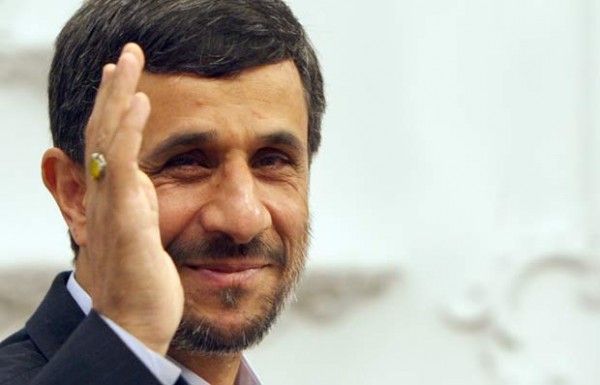
Editor’s Note:
The following is a guest contributing piece by Mitchell Belfer. Mr. Belfer is Editor-in-Chief of Central European Journal of International and Security Studies. He is based in Prague, Czech Republic.
_____________________________________________________________________
by Mitchell Belfer
Iran’s upcoming 14 June elections will likely be a somber affair. After suffering four years of wanton suppression including leadership incapacitation, the torture (at times to death) of its incarcerated rank-and-file members and the infiltration of social media outlets (its communications structure), the Green Movement is literally in a state of arrest. Political energies have been replaced with mass lethargy and resignation. Civil society is hacked and the Islamic Republic’s economy is rapidly retracting. At the same time, Iran’s international isolation due to its unwavering support for Assad in Syria, Hezbollah in Lebanon and Bahrain its nuclear intransigence and rhetorical sparring with Israel are used to justify further suppression. Freedom of speech, expression and public gatherings are but unfulfilled promises suspended to preserve what Ahmadinejad and the Ayatollah agree are in the public interest.
Silencing the opposition may be the only talking point between Ahmadinejad and Khamenei. And from within this political environment Ahmadinejad is preparing a political coup, an anti-establishment move that will either transform forever the face of the Islamic Republic or land Ahmadinejad and his supporters in, or under, the dock.
Ahmadnejad’s coup is banking on two cards. First, it is becoming clear that he is preparing to “pull a Putin”; – a term actually used by Nuri, the Ayatollah’s political adviser – empower his right hand man, and brother-in-law, Esfandiar Rahim Mashaei, and then return to the Presidential Office after four years of backseat driving. This possibility has Ayatollah Khamenei and the Supreme Council irate. They have threatened to deny Mashaei the right to run and have, at times, labelled both as enemies of the Islamic Republic.
Surprisingly, given his precarious international image, Ahmadinejad responded by launching an aggressive campaign to secure Mashaei’s right to run and thus played his second card. Ahmadinejad has explicitly threatened to cancel the elections altogether. Since election organisation falls under the President’s jurisdiction, this move is realistically achievable. Even though elections in Iran are nothing more than a Potemkin village, a façade to give Iranians the sense of political ownership but executed in a manner that avoids the unpleasantness of reformers while reinforcing the power positions of the Ayatollah, the Supreme Council and the Revolutionary Guards, the idea that Ahmadinejad would cancel the vote and use his power over the police of the Interior Ministry, and the much-hated, moped-driving Basij militia, to embarrass the Ayatollah – and his Presidential candidates notably Saeed Jalili (National Security Council) and Ali Larijani (Security Adviser to Khamenei) – has further polarized Iran’s political establishment and led to much speculation as to internal fragmentation of Iran’s leadership.
Sensing his diminishing position, and as a way of swaying what is left of the legitimate electorate – since the 2009 poll had even the dead voting, often more than once – into his camp, Ahmadinejad has become the champion of separating Mosque and state and has staked the embers of his career on limiting the power of the Ayatollah over policy-making, essentially turning Khamenei into a spiritual figure, while increasing the power of the President.
This is truly the stuff of revolutions! A leader, tired of being forced into a ceremonial role decides to take on the establishment, with only his brother-in-law by his side he sets his mind to doing what has not yet been done, to build a full-fledged democracy in Iran. Unfortunately Ahmadinejad is not Robespierre and his revolution is meant to reduce the power of his domestic opponents so that he, himself, may emerge as the main powerbroker in the country. Certainly, if the past eight years of Ahmadinejad are anything to go on, this move will not alter the domestic conditions facing Iranians in the least. It will only serve to replace one dictatorship with another. Ahmadinejad’s coup is rather a regime change.
In the current configuration of power, Ahmadinejad will certainly fail; the Ayatollah and the Revolutionary Guards wield too much influence and have too much force at their disposal. But his failure will produce an awkward situation since it will probably lead to his arrest or exile and thereby deny the only viable internal pressure on the establishment, further entrenching the authority of the current hyper-conservative regime. So, given the two options of the devil we know and the devil we know less it is clear that, in a strange twist, support should be lent to Ahmadinejad and Mashaei, Iran’s dynamic duo. At least they would be too preoccupied in dealing with the internal repercussions of their success to continue playing regional brinkmanship. Ahmadinejad’s coup is in international interest.